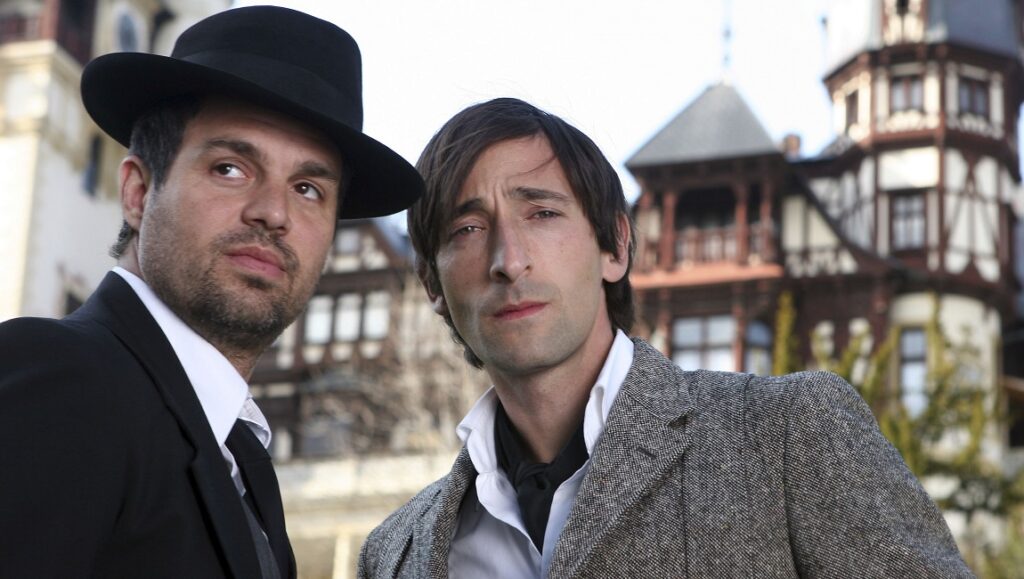I’m confused. Did I just watch a long con, an existential meltdown, or a roarin’ twenties period piece? Rian Johnson, director of The Brothers Bloom, probably hopes viewers will see all of the above, but present are only a few poignant moments scattered amidst an overlong caper flick with a dramatic identity crisis. The film opens with the young orphaned brothers Stephen and Bloom (played by Max Records and Zachary Gordon) bouncing between foster parents unable to deal with their peculiar mischief-making. It’s not long before Stephen, the oldest, discovers that he has a gift for the con, and that his younger brother has a knack for lying. Their first scheme — swindling their well-to-do peers out of their cash with an elaborate story involving a cave and fairy — causes the younger Bloom to wonder what he was giving up by assuming his role as a trickster. Fast forwarding 25 years, Bloom (Adrien Brody) finally decides he wants an “unwritten” life, and tells Stephen (Mark Ruffallo) as much. Of course, Stephen can’t give up the game, and in short order he’s roped his brother back into gaining the confidence of the rich recluse Penelope (Rachel Weiss).
Although the idyllic small towns, cars, and families at the beginning of the film all fit neatly into 1970s USA, the brothers dress, talk, and act as if they’re straight out of the roarin’ 20s — right down to their small black bowler hats. Adding to this general aesthetic confusion is Nathan Johnson’s soundtrack, consisting of gypsy jazz jarringly punctuated by classic rock. Still, The Brothers Bloom is not without its charms. Rachel Weiss’s performance as the quirky, multi-talented loner solicits both hearty laughs and genuine pathos, though her hi-jinks are too often offset by Brody’s dour demeanor. Robbie Coltrane, probably best known for his role in the Harry Potter films as Hagrid (the half-human, half-giant groundskeeper), briefly injects some mood-appropriate levity into the story when he fills an essential role in the con.
Caper flicks work because we get wrapped up in the fun and excitement of them. We escape into their world, living vicariously through the daring of the characters and the suspense of the job. They don’t bog us down in the emotional murk that so closely marks our own lives. And here’s where The Brothers Bloom fails: it’s neither a doomed heist nor a mad-cap caper. It’s an existential crisis straight-jacketed by cutesy narration and hopelessly buried beneath a convoluted con. And even though the underlying narrative weaves it’s way throughout, the film seems afraid to pause long enough to give it life, breath. Johnson seems to be under the impression that this would sap the film of some magic spell, without realizing that is never really had it in the first place.


Comments are closed.